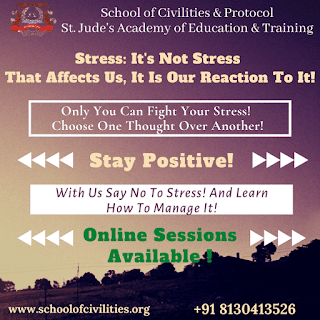How to improve English Language
In today’s times, English has become a language that you cannot do without.
Having a strong grip on English language has become the norm of the day!
And in case of the professionals; it is entirely another story. They are not only expected to know the English Language but they are expected to have a very strong command over it.
That brings us down to the fact that Learning English Language is important…
You might find the following suggestions
helpful to work on your language:
Knowing a lots of words is not enough; you must also be able to use them effectively in your sentences.
Building word power is no doubt an important tool you can use to improve both your Spoken & Written English. At the same time you must have a good knowledge of at least basic practical grammar so you are able to form grammatically correct sentences to use the new words you have learned.
And you also must know your Tenses well.
So make sure that you regularly work on building your word bank in order to have a powerful vocabulary.
Using the right word…
Sometimes people are confused because of the words which looksimilar, sound similar, and are often spelled in the same manner.
For example do you know the difference between acceptand except? Or for that matter duel and dual or affectand effect?
These are examples of some of the most commonly used words people find to be very confusing. Such words are called Homophone & Homonym.
While working on your vocabulary, it is important that you do not ignore learning about these confusing words to be able to use the right word in the right place.
Using the right Adjectives
ADJECTIVES ARE WORDS that describe and qualify a noun.
And that’s why it is important we keep learning the most powerful and useful adjectives as they are the spice of language that tell your listeners or readers what you actually are trying to convey to them.
Without adjectives, our language would sound to be limp and life Verbs are the engines of communication, describing the action taking place or the relationship between two people or things. And verbs also tell a reader or listener the time of the action: present, past, or future.
Verbs are such an essential part of communication that sometimes a verb can stand alone to communicate a whole idea:
Stop. Go. Smile. Hurry.
Even in one-word answers, the verb is understood although not spoken: Have I made myself clear?
Yes. [Understood, not spoken: You have made yourself clear.]
When are you arriving?
Tomorrow. [Understood, not spoken: I will arrive tomorrow.]
And What About The Verbs
Verbs are the moving force of communication that tell us about the action taking place between two people or things and they also tell us about the time of the action: present, past, or future.
If you want your sentences to be very forceful to create a strong impression in your talk or writing then you must not ignore the correct usage of verb in your language.
In addition to all above, do the following too:-
· Cultivate a habit of reading books that interest you
· Learn to “think in English”
· Find a friend to practice speaking in English with
· Watch English movies
· Listen to famous speakers of the world on U-Tube
· Join some Spoken English classes offered by some good institute
For more tips to improve your language on daily basis visit our website: https://schoolofcivilities.
We update you with an everyday language tip which is exceptionally valuable & useful for improving your English language. A day by day tip is vastly improved for an incredible development.
Schoolofcivilities.org


Comments
Post a Comment